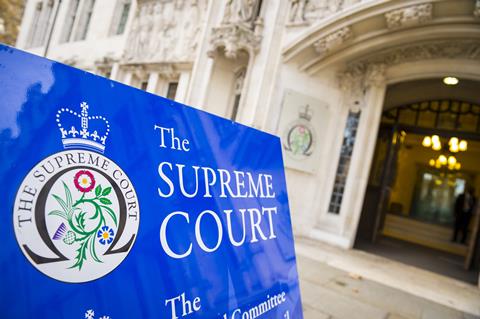There will be significant disagreements between the parties in the car finance showdown being heard at the Supreme Court this week. But one thing everyone involved can agree is that the outcome will have far-reaching implications for consumers, lawyers, banks and even the taxpayer.
At a three-day hearing opening today in the UK’s highest court, two lenders, Close Brothers and FirstRand Bank (MotoNovo), will challenge the decision of the Court of Appeal that a car finance broker could not lawfully receive a lender's commission without first obtaining the customer’s full informed consent to the deal.
Commentators say the ruling could pave the way for compensation claims worth up to £30bn in total, with hundreds of thousands of car buyers poised to claim back commission fees. Their lawyers too stand to receive a potential windfall of millions.

Banks and lenders are hopeful of a reprieve but are braced for a catastrophic result: Barclays has set aside £90m to pay off potential motor finance claims against one of its subsidiaries, while Lloyds has earmarked £700m to cover potential claims, on top of £450m set aside earlier. To understand the importance of the issue to the wider economy, look no further than the application by Chancellor Rachel Reeves to intervene this week (the application was refused).
An HM Treasury spokesperson said: ‘We want to see a fair and proportionate judgement that ensures compensation to consumers that is proportionate to the losses they have suffered, and allows the motor finance sector to continue playing its role in supporting millions of motorists to own vehicles.’
Claimant firm Bott & Co, representing those sold motor finance deals, said the final judgment of the Supreme Court could set a defining precedent for consumer finance regulation. ‘For too long, car finance providers took advantage of consumers with hidden commission payments and unfair agreements,' said Bott & Co solicitor Coby Benson. This Supreme Court case is a crucial step towards holding these companies accountable and securing justice for the millions affected.’
Experts suggest the case could be the equivalent of the PPI scandal which resulted in years of claims and heavy losses for banks.
Dr Derek Whayman, lecturer in law at the University of Reading, said judges must confirm what constitutes sufficient disclosure of fees, whether small enough fees might not require explicit disclosure and, most importantly, when lenders are liable if dealers fail to disclose commissions properly.
‘Until the Supreme Court provides clarity, reliable consumer advice remains impossible,’ he said. ‘Without clarity, it will be impossible to create a settlement scheme that allows aggrieved car buyers to claim redress efficiently rather than through expensive and slow court processes.’
The Financial Conduct Authority has already said it will set in motion an industry-wide redress scheme if the Supreme Court finds that consumers were unfairly charged commission on car loans.



























9 Readers' comments